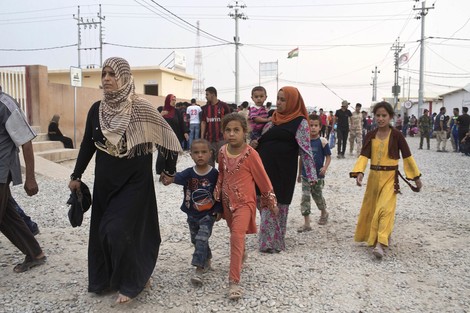Your podcast discovery platform
Curious minds select the most fascinating podcasts from around the world. Discover hand-piqd audio recommendations on your favorite topics.

piqer for: Technology and society Global finds Globalization and politics
Emran Feroz is an Afghan-Austrian journalist currently based in Stuttgart, Germany. He is regularly writing from Afghanistan, often focusing on the Middle East, Central Asia, drone warfare, refugee policies and human rights. Emran is writing in both German and English. His work has already appeared in international media outlets such as Al Jazeera, The Intercept, Alternet, The Atlantic or the New York Times and in various German and Austrian news papers and magazines.
American Media, Iraq, And How Novels Can Narrate An Alternative History
I am a longtime fan of American–Iraqi author Sinan Antoon, who has written novels such as "The Corpse Washer", "I'jaam — An Iraqi Rhapsody" or "The Baghdad Eucharist".
Antoon is a harsh critic of the 2002 American-led invasion of Iraq. He believes that Western imperialism destroyed his country and that the United States acts in a very neo-colonialist way.
However, Antoon believes that his novels are able to narrate an "alternative history".
In this short episode of "On the Media", Antoon describes the destruction of his homeland and how he continues to mourn the countless civilian casualties of the Iraq War and its impacts. He also talks about the revived sectarianism in Iraq and how many American/Western media outlets strengthened the "Sunni/Shia narrative" by producing flawed and simplistic images of the Middle East over the last years.
"As if there is no class and there are no ideologies and no other types of differences. So, to my mind, the rampant sectarianism that exists today was exacerbated after 2003, and a defining factor was the United States trying to organize Iraqis politically according to sect," Antoon said.
In my opinion, Antoon has many interesting things to say — and he should be heard.
The author himself has been a US citizen for 20 years, but he believes that every American citizen must realize the fact that he or she is implicated in every single thing the US government is doing abroad. Antoon also points out that since the 1990s, the concept of collateral damage is making human suffering abstract.
And that is also one of the main reasons why war criminals, like those who started the war in Iraq, will always get away with it.
